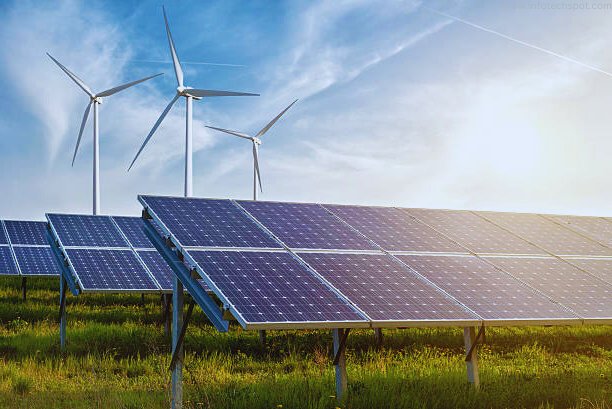Energy Technology Developments
This article delves into the exciting developments in this field, highlighting the importance of innovation, and addressing the concepts of perplexity and burstiness to bring forth a diverse and engaging discussion.

Introduction:
The world is witnessing a remarkable era of technological advancements, particularly in the realm of energy. As societies strive for sustainable development, researchers and engineers are continuously pushing the boundaries of energy technology. This article delves into the exciting developments in this field, highlighting the importance of innovation, and addressing the concepts of perplexity and burstiness to bring forth a diverse and engaging discussion.
Exploring Breakthroughs in Energy Technology
The rapid progress in energy technology has been marked by several noteworthy breakthroughs. From renewable energy sources to energy storage solutions, these advancements are revolutionizing how we generate, distribute, and consume energy. Let's explore some key areas driving the transformation.
-
Renewable Energy Revolution:
Renewable energy has gained substantial momentum as a clean and sustainable alternative to fossil fuels. Solar power, wind energy, hydropower, and geothermal energy are witnessing remarkable advancements in efficiency and cost-effectiveness. Innovations like next-generation solar cells, advanced wind turbine designs, and novel approaches to harnessing geothermal heat are making renewable energy sources increasingly accessible and viable.
-
Energy Storage Innovations:
Efficient energy storage is essential for balancing intermittent renewable sources and ensuring a stable power supply. Recent developments in battery technologies, such as lithium-ion batteries and solid-state batteries, have significantly enhanced energy storage capacities. Moreover, emerging solutions like flow batteries, thermal storage, and hydrogen storage are pushing the boundaries of energy storage capabilities, enabling seamless integration of renewable energy into existing grids.
-
Smart Grids and Energy Management:
The concept of smart grids is transforming the way we manage and distribute energy. These intelligent systems utilize advanced sensors, real-time data analytics, and automation to optimize energy consumption, reduce transmission losses, and enhance grid resilience. Smart grid technologies enable dynamic demand response, decentralized energy generation, and efficient energy management, paving the way for more sustainable and reliable energy infrastructure.
Shaping a Sustainable Energy Landscape for Tomorrow
While the aforementioned breakthroughs are driving the energy transition, it is crucial to shape a sustainable energy landscape that encompasses diverse solutions. This requires a holistic approach that considers various aspects of energy production, distribution, and consumption.
-
Decentralized Energy Generation:
The shift towards decentralized energy generation empowers individuals, communities, and businesses to produce their energy. Distributed renewable energy systems, such as rooftop solar panels and small-scale wind turbines, promote energy self-sufficiency and reduce dependence on centralized power plants. This democratization of energy production fosters resilience, empowers local economies, and contributes to the overall sustainability of the energy sector.
-
Electrification of Transportation:
The transportation sector accounts for a significant portion of global energy consumption and carbon emissions. The advent of electric vehicles (EVs) presents a promising solution to reduce greenhouse gas emissions and reliance on fossil fuels. Ongoing research focuses on improving EV battery technologies, expanding charging infrastructure, and exploring innovative concepts like wireless charging and vehicle-to-grid integration. These efforts aim to accelerate the electrification of transportation and pave the way for a cleaner and more sustainable mobility future.
-
Energy Efficiency and Conservation:
Enhancing energy efficiency and promoting conservation play a vital role in achieving a sustainable energy landscape. Energy-efficient building designs, smart appliances, and industrial process optimizations help reduce overall energy demand. Additionally, educating individuals and businesses about energy conservation practices can bring about significant energy savings. A combination of technological innovations, policy incentives, and behavioral changes can drive substantial energy efficiency improvements and contribute to a more sustainable future.
Conclusion:
The evolution of energy technology is shaping a sustainable future, fueled by innovation, collaboration, and a deep commitment to environmental stewardship. From renewable energy sources and energy storage solutions to smart grids and decentralized energy generation, the advancements discussed here are driving the transformation of the energy sector. By embracing these breakthroughs and fostering diverse solutions, we can create a resilient, low-carbon, and efficient energy landscape for generations to come.













